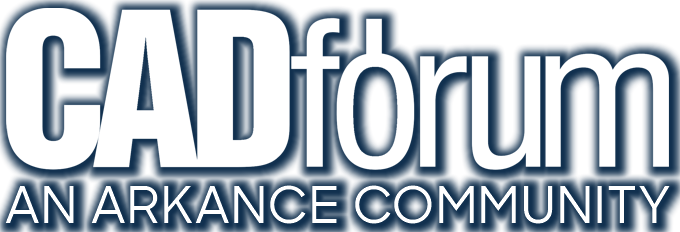 Discussion forum
Discussion forum
?CAD discussions, advices, exchange of experience
 CAD discussion forum - ask any CAD-related questions here, share your CAD knowledge on AutoCAD, Inventor, Revit and other Autodesk software with your peers from all over the world. To start a new topic, choose an appropriate forum.
CAD discussion forum - ask any CAD-related questions here, share your CAD knowledge on AutoCAD, Inventor, Revit and other Autodesk software with your peers from all over the world. To start a new topic, choose an appropriate forum.
Please abide by the rules of this forum.
|
Post Reply 
|
| Author | |||||||||||||||||||||||||||||||||||||||||||||||||||||||||||||||||||||||||||||||||||||||||||||
AliveInTheLab 
RSS robots 
Joined: 20.Nov.2009 Status: Offline Points: 425 |
 Topic: Heraclitus: A Whack on the Side of the Head by Roger van Oech Topic: Heraclitus: A Whack on the Side of the Head by Roger van OechPosted: 08.Jan.2013 at 10:54 |
||||||||||||||||||||||||||||||||||||||||||||||||||||||||||||||||||||||||||||||||||||||||||||
|
As I mentioned in part 1 of this book review, my boss, VP of Corporate Strategy & Engagement, Jon Pittman, gave me a copy of A Whack on the Side of the Head for Christmas. The book recommends different ways people can change their thought processes to be more creative. It was written by Dr. Roger van Oech who is the founder and president of Creative Think in Menlo Park. As I read the book it was peppered with quotations attributed to Heraclitus. As the quotations piled up, I thought the punch line at the end was going to be that Heraclitus was a fictional character, and the quotes should really be attributed to the author. As it turns out, Heraclitus was a real person. There's actually a chapter in the book that outlines who he was. Heraclitus (fl. circa 500 B.C.) was one of the most provocative and intriguing of the ancient Greek philosophers. Dr. von Oech regards Heraclitus as the world's first creativity thinker. His epigrams about life, nature, and the cosmos planted the seeds in the works of Plato, Aristotle, the Stoics, Bishop Hippolytus, Plotinus, Goethe, Hegel, Marx, Nietzsche, Jung, and Ernst Cassirer. [pages 199-200] The same chapter even lists sayings from Heraclitus to ponder [pages 202-203]. I have my own interpretation of what these mean. Here is what immediately came to mind the first time I read them.
As I mentioned in part 1, I recommend this book highly. It is an easy read and has lots of humorous pictures. The chapters are short and sweet — perfect for knocking out one or two as part of a commute on mass transit. I can see why the book has been a best-seller for 25 years. Creatve interpretation is alive in the lab. Go to the original post... |
|||||||||||||||||||||||||||||||||||||||||||||||||||||||||||||||||||||||||||||||||||||||||||||
|
It's Alive in ihe Lab - Autodesk Labs blog by Scott Sheppard
|
|||||||||||||||||||||||||||||||||||||||||||||||||||||||||||||||||||||||||||||||||||||||||||||
 |
|||||||||||||||||||||||||||||||||||||||||||||||||||||||||||||||||||||||||||||||||||||||||||||
Post Reply 
|
|
|
Tweet
|
| Forum Jump | Forum Permissions  You cannot post new topics in this forum You cannot reply to topics in this forum You cannot delete your posts in this forum You cannot edit your posts in this forum You cannot create polls in this forum You cannot vote in polls in this forum |
This page was generated in 0,133 seconds.
![CAD Forum - tips, tricks, discussion and utilities for AutoCAD, Inventor, Revit and other Autodesk products [www.cadforum.cz] CAD Forum - tips, tricks, discussion and utilities for AutoCAD, Inventor, Revit and other Autodesk products [www.cadforum.cz]](/common/arkance_186.png)









 Heraclitus: A Whack on the Side of the Head by Roger van Oech
Heraclitus: A Whack on the Side of the Head by Roger van Oech Topic Options
Topic Options


